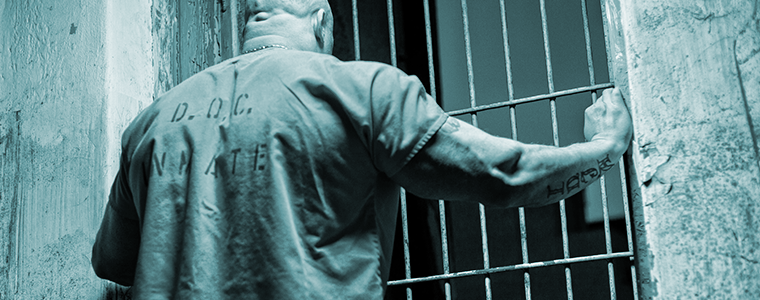Book Review: Parental Incarceration
Johnston, Denise, and Megan Sullivan, editors. Parental Incarceration: Personal Accounts and Developmental Impact. Routledge, 2016. 177 pp. ISBN (paperback) 978-1-138-18322-3.
By Thomas A. Underwood, Boston University
The most euphemistic of modern military phrases may be the term “collateral damage,” the bombing of civilians not intended as targets in air raids. Of the numerous terms one might choose to describe the children of incarcerated parents, this military expression is at first glance the most tempting. Such children, innocent due to their status as minors, are, by virtue of their parents’ imprisonment, betrayed by parental absence; victimized by exposure to a culture of crime and substance abuse; upended by foster care placements and schooling interruptions; torn between their desire for love and feelings of resentment; and paralyzed by shame and guilt. This path-breaking book by Denise Johnston, an expert in child development and a mother once incarcerated, and Megan Sullivan, a writing professor and the child of an incarcerated father, suggests that such damage plays out in myriad ways for children, some of whom succumb to their parents’ world and others of whom survive and transcend that world.
Based upon more than five years of careful, interdisciplinary work in an under-researched area, Parental Incarceration fills a critical gap for both clinicians and students. Each of the five chapters—“Relationships,” “Safety and Protection,” “Care and Guidance,” “The Experiences of Parental Arrest, Incarceration and Reentry,” and “Adults Who Experienced Parental Incarceration as Children”—combines a miniature literature review (an accomplishment in itself considering the paucity of literature on the subject) with tentative conclusions based partly on thirty-five autobiographical narratives by incarcerated parents or the children of incarcerated parents whom the coauthors call “contributors.” Johnston and Sullivan do not cite Joan McCord’s seminal 1978 work, “A Thirty Year Follow-up of Treatment Effects,” which demonstrated the critical importance of longitudinal research to ensure that intervention to assist juveniles is helpful rather than harmful to them, but they reinforce McCord’s work by prudently acknowledging the need for scientificallyresponsible, long-term research studies focusing on adults who endured all or portions of their childhoods with their parents in prison. Inspired by their own painful experiences yet insisting on scientific evidence, Johnston and Sullivan (a valued colleague of mine for many years) have produced a work to remind social scientists of the need to keep studying intervention, recidivism, and parenting.
Yet Parental Incarceration, a call to anyone studying childhood development, is more than a rich secondary resource for criminologists, social workers, and psychologists. The appended firsthand accounts, in which inmates reflect on their parenting skills (or lack thereof) and adult children of prisoners provide what amount to victim impact statements, offer a valuable compendium of primary sources. The contributors’ devastating and inspiring testimonies, from which Johnston and Sullivan mine illustrative quotations for analysis and distillation, cry out for pedagogical application in writing courses, in social sciences classes, and in prison classrooms. The accounts draw readers into a world of abject poverty, alcoholism, crack babies, bad marriages, mental illness, hunger, sexual abuse, prison maternity wards, domestic violence, and homelessness. It is impossible to come away from such narratives without seeing the harmful effect on family structure that results from criminalizing addiction. The stories are equally poignant for documenting their authors’ deep yearning for guidance, for comfort, and—most of all—for family bonds. Indeed, the narratives by inmates, some of whom are serving life sentences for murder, often reveal their authors’ profound acquisition of self-knowledge about both their failures and their love for their children. While the bleakest of the inmate narratives call to mind the observation of eighteenth-century minister Thomas Adam that “Hell is truth seen too late,” the book’s raw narratives make for arresting reading and testify to the human will to survive, to learn, and to adapt.
References
Adam, Thomas. Private Thoughts on Religion, and Other Subjects Connected with It. 3rd ed. Glasgow: William Collins, 1826, 221.
McCord, Joan. “A Thirty-Year Follow-up of Treatment Effects.” In Crime and Family: Selected Essays of Joan McCord, edited by Sayre-McCord Geoffre and David P. Farrington, 13-21. Philadelphia: Temple University Press, 2007.
